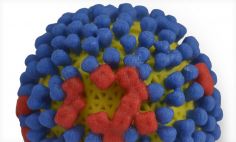The majority of children who get COVID-19 have mild disease. But a small percentage develop a serious complication called severe multisystem inflammatory syndrome (MIS-C). MIS-C affects the heart, lungs, kidneys, brain, and other parts of the body. Symptoms occur weeks after the first symptoms of COVID-19. MIS-C usually affects children between ages 3 and 12.
Thankfully, there's treatment to help children with MIS-C. But why do only some children experience this severe reaction?
A recent study, funded in part by the National Institutes of Health, looked at the immune system's response to SARS-CoV-2, the virus that causes COVID-19, to see if differences might explain why children and adults get severe disease.
Researchers Lael Yonker, M.D., and Galit Alter, Ph.D., took blood from 25 children who had mild COVID-19 and 17 children who had MIS-C and compared the antibodies in the samples. They also assessed the antibodies in 60 adults with COVID-19, including 26 who had severe disease.
The researchers expected the children's antibodies to look different from those in adults. To their surprise, they found the antibodies were similar in adults and children with mild COVID-19 disease.
However, the researchers did find a different antibody response between adults and children with severe disease. Children with MIS-C had high levels of a type of antibody called IgG that normally helps control infection. But in this case, the antibody activates cells called macrophages and drives the severe response. Adults with severe COVID-19 showed increased levels of another type of antibody, IgA, which interacts with a different kind of immune cell, the neutrophil, resulting in life-threatening complications in adults.
This study should help clinicians better understand different COVID-19 outcomes and could lead to better treatments for severe COVID-19 complications in people of all ages.







